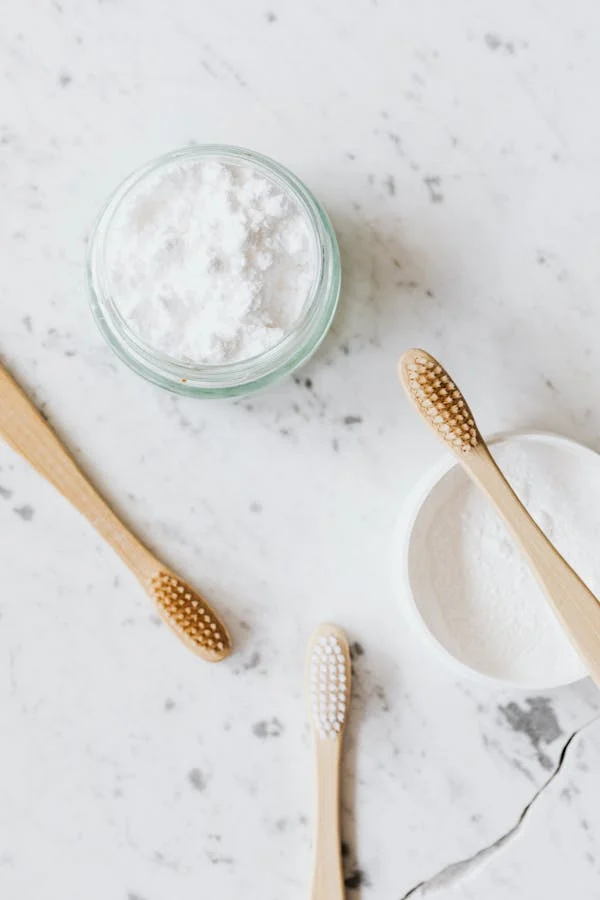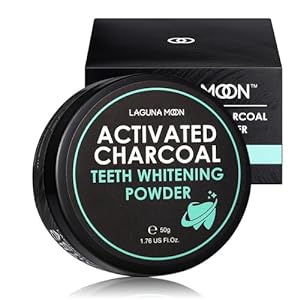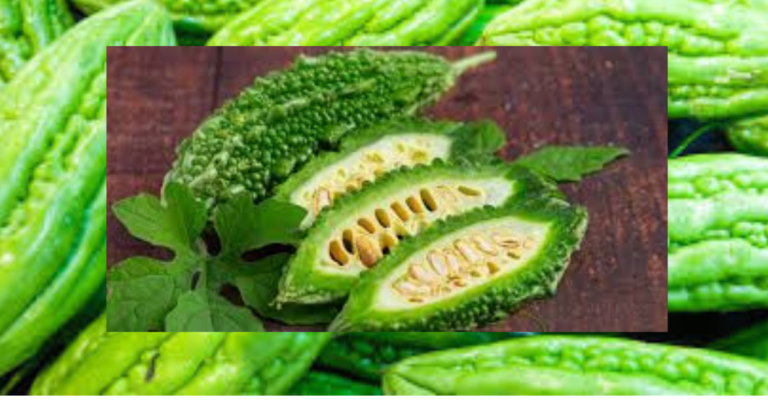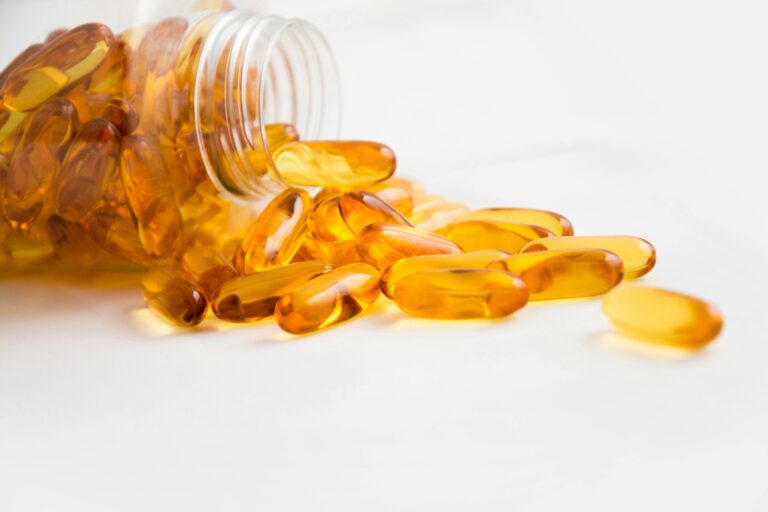Charcoal Teeth Whitening Powder: A Natural Way to Brighten Your Smile
Table of Contents
ToggleIntroduction to Charcoal Teeth Whitening Powder
Charcoal teeth whitening powder is derived from activated charcoal, a form of carbon processed to have small, low-volume pores that increase its surface area for adsorption. Activated charcoal is used in various medical and cosmetic applications due to its ability to bind to toxins and impurities.
In recent years, activated charcoal has gained popularity in oral care, particularly in teeth whitening. Proponents claim it can remove surface stains on teeth, leading to a whiter, brighter smile. This natural approach appeals to many individuals seeking an alternative to chemical-laden whitening products.
How Does Charcoal Teeth Whitening Work?
Activated charcoal works through a process called adsorption, where particles stick to the surface of the charcoal. When applied to teeth, the activated charcoal binds to plaque, food particles, and surface stains, helping to remove them when the charcoal is rinsed away.
Here’s a step-by-step explanation of how charcoal teeth-whitening powder works:
- Application: The powder is typically applied to a toothbrush and then gently brushed onto the teeth.
- Adsorption: As the charcoal comes into contact with the teeth, it binds to the particles responsible for stains and discoloration.
- Removal: After brushing, the charcoal, along with the bound particles, is rinsed away, leaving the teeth cleaner and potentially whiter.
Benefits of Using Charcoal Teeth Whitening Powder
1. Natural Ingredients
One of the main appeals of charcoal teeth whitening powder is its natural composition. Unlike many commercial teeth-whitening products that contain harsh chemicals like hydrogen peroxide and carbamide peroxide, activated charcoal is a natural substance. This makes it an attractive option for those who prefer natural products and are concerned about the long-term effects of chemical exposure.
2. Effective Stain Removal
Activated charcoal is particularly effective at removing surface stains caused by foods, beverages, and smoking. Regular use can help to maintain a brighter smile by keeping these stains at bay.
3. Affordable
Charcoal teeth whitening powder is generally more affordable than professional teeth whitening treatments or high-end whitening kits. This makes it accessible to a broader range of people looking to enhance their smile without breaking the bank.
4. Easy to Use
Using charcoal teeth-whitening powder is straightforward and can easily be incorporated into a daily oral care routine. Most powders come with simple instructions, making it easy for anyone to use them at home.
5. Minimal Sensitivity
Many users report that charcoal teeth whitening powder causes less tooth sensitivity compared to traditional whitening products. This can be a significant advantage for those with sensitive teeth who struggle to find a suitable whitening solution.
Potential Risks and Side Effects
While charcoal teeth whitening powder offers several benefits, it is essential to be aware of potential risks and side effects.
1. Abrasiveness
Activated charcoal is abrasive and can potentially wear down tooth enamel if used excessively or improperly. Enamel is the outermost layer of the teeth, and once it is worn away, it cannot be replaced. To minimize the risk of enamel erosion, it is crucial to use the powder as directed and avoid overuse.
2. Messiness
Charcoal powder can be messy and may stain sinks, clothing, and other surfaces if not handled carefully. It is recommended to use the product in a controlled environment and clean up any spills promptly.
3. Incomplete Whitening
While charcoal can effectively remove surface stains, it may not be as effective at whitening teeth that are deeply discolored or stained. For more severe discoloration, professional whitening treatments or other methods may be necessary.
How to Use Charcoal Teeth Whitening Powder
Using charcoal teeth-whitening powder is simple and can be easily integrated into your daily oral care routine. Follow these steps for optimal results:
- Choose the Right Product: Select a high-quality charcoal teeth-whitening powder from a reputable brand.
- Prepare Your Toothbrush: Wet your toothbrush and dip it into the powder, ensuring the bristles are evenly coated.
- Brush Gently: Brush your teeth gently for 2-3 minutes, focusing on areas with stains. Avoid applying too much pressure to prevent enamel erosion.
- Rinse Thoroughly: Spit out the charcoal and rinse your mouth thoroughly with water to remove any remaining residue.
- Follow Up: Brush your teeth with regular toothpaste to ensure all charcoal is removed and to freshen your breath.
Ingredients in Charcoal Teeth Whitening Powder
Charcoal teeth whitening powders often contain a blend of natural ingredients designed to enhance their effectiveness and provide additional oral health benefits. Common ingredients include:
- Activated charcoal is the primary ingredient responsible for stain removal.
- Baking soda is a mild abrasive that helps to polish teeth and neutralize acids.
- Coconut Oil: Known for its antimicrobial properties, coconut oil can help improve oral health.
- Bentonite Clay: Helps to remineralize teeth and draw out toxins.
- Essential Oils: Ingredients like peppermint or tea tree oil add a refreshing flavor and provide antibacterial benefits.
Comparing Charcoal Teeth Whitening to Other Methods
There are several methods available for teeth whitening, each with its own set of advantages and disadvantages. Here’s a comparison of charcoal teeth-whitening powder with other popular methods:
1. Professional Whitening Treatments
- Advantages: Professional treatments performed by dentists are highly effective and can whiten teeth by several shades in a single session.
- Disadvantages: These treatments are expensive and may cause significant tooth sensitivity.
2. Whitening Strips
- Advantages: Whitening strips are easy to use and can provide noticeable results within a few weeks.
- Disadvantages: They can cause tooth sensitivity and may not fit all teeth sizes and shapes perfectly.
3. Whitening Toothpaste
- Advantages: Whitening toothpaste is readily available and easy to incorporate into daily oral care routines.
- Disadvantages: It is generally less effective at removing deep stains compared to other methods.
4. Natural Remedies
- Advantages: Natural remedies, such as oil pulling or baking soda, are gentle and have fewer side effects.
- Disadvantages: These methods often take longer to show results and may be less effective at removing stains.
DIY Charcoal Teeth Whitening: Pros and Cons
Many individuals opt to make their own charcoal teeth-whitening powder at home using simple ingredients. While DIY solutions can be cost-effective and allow for customization, they also come with potential drawbacks.
Pros
- Cost-effective: Making your powder can be more affordable than purchasing commercial products.
- Customizable: You can adjust the ingredients to suit your preferences and needs.
Cons
- Safety Concerns: DIY formulations may not be as safe or effective as professionally formulated products.
- Inconsistent Results: Homemade powders may vary in effectiveness, leading to inconsistent whitening results.
Frequently Asked Questions (FAQs)
1. Is charcoal teeth-whitening powder safe for daily use?
While some people use it daily, it is recommended to use charcoal teeth whitening powder 2-3 times a week to avoid potential enamel erosion.
2. Can charcoal powder whiten deep stains?
Charcoal powder is effective for surface stains but may not be as effective for deep, intrinsic stains. Professional treatments might be necessary for severe discoloration.
3. Will charcoal teeth-whitening powder cause tooth sensitivity?
Many users report less sensitivity to charcoal powder compared to traditional whitening products. However, overuse or improper use can lead to sensitivity.
4. Can charcoal teeth-whitening powder damage my gums?
If used excessively or improperly, the abrasive nature of charcoal can irritate the gums. Always brush gently and follow the product instructions.
5. How long does it take to see results with charcoal teeth whitening powder?
Results can vary, but many users report seeing a difference after a few weeks of regular use.
6. Is charcoal teeth-whitening powder suitable for everyone?
While it is generally safe for most people, those with dental conditions or severe tooth sensitivity should consult a dentist before using it.
7. Can I use charcoal teeth-whitening powder with braces?
It is not recommended to use charcoal powder with braces, as it can get stuck and be difficult to clean out. Consult your orthodontist for advice.
8. How should I store charcoal teeth-whitening powder?
Store the powder in a cool, dry place, away from moisture and direct sunlight.
9. Can pregnant or breastfeeding women use charcoal teeth-whitening powder?
While generally considered safe, pregnant or breastfeeding women should consult their healthcare provider before using any new oral care product.
10. Can charcoal teeth-whitening powder replace regular toothpaste?
Charcoal powder should not replace regular toothpaste as it does not contain fluoride, which is essential for preventing tooth decay. Use it as a supplementary treatment.
11. Is activated charcoal the same as regular charcoal?
No, activated charcoal is specifically processed to have a higher surface area for adsorption and is safe for oral use. Regular charcoal is not suitable for this purpose.
12. Does charcoal teeth whitening powder expire?
Most charcoal teeth-whitening powders have a shelf life indicated on the packaging. Check the expiration date before use.
13. Can I use charcoal teeth whitening powder on dental restorations?
The charcoal powder may not be suitable for use on dental restorations, such as crowns or veneers, as it can scratch the surface. Consult your dentist for advice.
14. How often should I use charcoal teeth-whitening powder?
It is recommended to use the powder 2-3 times a week to avoid potential enamel erosion and maintain optimal oral health.
15. Can I make my charcoal teeth-whitening powder at home?
Yes, you can make your powder using activated charcoal and other natural ingredients. However, ensure that you follow safe recipes and guidelines.
16. Does charcoal teeth-whitening powder have a taste?
Most charcoal powders are tasteless, but some brands add essential oils for a refreshing flavor.
17. Can children use charcoal teeth-whitening powder?
It is best to consult a pediatric dentist before allowing children to use charcoal teeth whitening powder.
18. Will charcoal teeth-whitening powder stain my sink?
Charcoal powder can stain sinks if not rinsed away promptly. Clean up any spills immediately to prevent staining.
19. Is there scientific evidence supporting the effectiveness of charcoal teeth-whitening powder?
While there is anecdotal evidence supporting its effectiveness, more scientific studies are needed to confirm the long-term benefits and safety of charcoal teeth whitening powder.
20. What should I do if I experience adverse effects from using charcoal teeth whitening powder?
If you experience any adverse effects, such as increased sensitivity or gum irritation, discontinue use immediately and consult your dentist.
Conclusion
Charcoal teeth whitening powder offers a natural and affordable alternative for those seeking a brighter smile without the use of harsh chemicals. While it is effective at removing surface stains and has several benefits, it is essential to use the product correctly and be aware of potential risks. By incorporating charcoal teeth whitening powder into your oral care routine and following best practices, you can achieve a whiter, healthier smile. As always, consult your dentist before starting any new oral care regimen to ensure it is suitable for your individual needs.
Facial Steamers: How to Use Them for Spa-Like Results at Home










Школа вокала: Программа обучения для всех уровней подготовки
уроки вокала для начинающих top1-shkola-vocala.ru .
Надежный монтаж сантехники по доступной цене: Узнайте больше
цены за установку сантехники https://www.santehnik-spb-cena.ru/ .
Применение зип пакетов с бегунком в быту и на работе: Полезные советы
купить зип пакеты с бегунком оптом http://zip-lock-pakety.ru/ .
Наркология в Самаре: Эффективное лечение и поддержка пациентов
клиника наркологии в самаре https://narkolog-klinika-samara-1.ru/ .
Казино Чемпион: Играй онлайн и выигрывай реальные деньги
официальный сайт казино Чемпион официальный сайт казино Чемпион .
Don’t miss your chance at true love today. – http://xurl.es/p0gwt
Как быстро вывести из запоя – Лучшие методики и советы врачей
Вывод из запоя в Алматы Вывод из запоя в Алматы .
Какие препараты используются для вывода из запоя
Вывод из запоя на дому в Алматы http://www.vivodizzapoya1.kz .
Современные технологии в наркологии: Безопасный вывод из запоя
Вывод из запоя в Алматы на дому https://www.vivodizzapoya.kz .
Svai-Peresvet: сколько стоят винтовые сваи и от чего зависит цена
Svai-Peresvet: купить сваи винтовые
Ремонт иномарок всех марок – От диагностики до полного восстановления
техобслуживание и ремонт иномарок http://www.remont-inomarok-spb.ru/ .
Erectile dysfunction treatments available online from TruePills.
Discreet, next day delivery and lowest price guarantee.
Trial ED Pack consists of the following ED drugs:
Viagra Active Ingredient: Sildenafil 100mg 5 pills
Cialis 20mg 5 pills
Levitra 20mg 5 pills
Acquistare viagra con paypal:
https://cutt.ly/revrx6EP
https://cutt.ly/gevrvQ2P
https://u.to/BdO4IA
Купить двигатель Cummins 6 ISBe: Долговечность и экономичность
двс 6 isbe http://www.cummins-6isbe-1.ru .
Лечение запоев: вывод из запоя и дальнейшая реабилитация
Вывод из запоя в Алматы на дому https://vivodizzapoyavalmaty.kz .
Комплексное лечение зависимости в наркологическом центре Алматы
Скорая наркология в Алматы vivodizzapoyanadomu.kz .
Специалисты по грузоперевозкам из Китая в Казахстан — Индивидуальный подход и гибкость
казахстан китай грузоперевозки http://perevozki-kitai-kazahstan.ru/ .
Элитные шубы из натурального меха: Превосходный выбор для стильных и успешных женщин
салон меха и кожи shuby-premium.ru .
УФ печать: как создать эксклюзивный дизайн для вашего бренда
печать на плитке керамической http://www.shirokoformatnaya-uf-pechat.ru/ .
Срочные заказы на УФ печать на дереве – оперативная работа по низкой цене
фото на деревянной доске http://pechat-derevo.ru/ .
Пансионат для пожилых людей: комфортное и безопасное проживание для ваших родителей
платные пансионаты для пожилых людей платные пансионаты для пожилых людей .
Как правильно выбрать дом престарелых: основные критерии
дома для престарелых в москве https://doma-prestarelyh2.ru/ .
Чистка лимфы солодкой и полисорбом: опыт и мнения пользователей
полезные статьи о здоровье и медицине http://www.clinika-moscow.ru .
Купить шубу из натурального соболя: роскошные модели по выгодным ценам
шубы из соболя http://www.shuby-sobol.ru/ .
Зимние подарочные наборы с натуральной косметикой: идеи для ухода и заботы
Подарочные наборы для детей http://www.gift31.ru/ .
Вскрытие дверей в Санкт-Петербурге: доступные цены и гарантии
открытие замков спб https://zamkidoloi.ru .
Ноотропы для улучшения умственных способностей от магазина Биохакер Хост
Биохакер Хост: магазин ноотропов
Винтовая свая 57 мм: стоимость и ключевые преимущества
винтовые сваи 57 мм цена за штуку https://vintovaya-svaya-57-mm.ru/ .
Как добиться первых позиций в поисковой выдаче с помощью SEO продвижения сайта
продвижения сайта продвижения сайта .
Ортопедический матрас: почему важна поддержка позвоночника во время сна
ортопедические матрасы размеры и цены https://ortopedicheskij-matras-moskva-1.ru/ .
Картонные коробки для упаковки хрупких товаров: защита и надежность
картонные коробки дешево москва картонные коробки дешево москва .
Лучшие клиники Москвы для суррогатного материнства
как стать суррогатной матерью в москве цены https://www.surrogatnoe-materinstvo-msk.ru .
Купить флис в интернет-магазине: доставка по всей России
флис ткань оптом от производителя купить https://flis-optom77.ru .
Купить качественный флис для пошива одежды: лучшие предложения онлайн
флис оптом москва http://www.flis-optom99.ru/ .
Наркология Самара: клиника для анонимного лечения зависимостей
наркология самара narcologicheskaya-clinika-samara-2.ru .
Купить двигатель Cummins M11: оптимальное решение для тяжелой техники
м11 камминз https://www.dvigatel-cummins-m-11.ru .
Запчасти на ВАЗ: всё для ремонта и модернизации вашего авто
lada запчасти zapchasti-vaz1.ru .
Выбираем лучший детский матрас: здоровье и комфорт для вашего ребенка
матрас детский 80 https://detskij-matras-moskva.ru/ .
Как лизинг коммерческого транспорта помогает снизить финансовые риски
купить оборудование в лизинг kommercheskij-transport-v-lizing0.ru/oborudovanie .
Доставка алкоголя круглосуточно: заказ онлайн с быстрой доставкой
алкоголь с доставкой на дом москва https://www.dostavka-alkogolya-moskva-msk-1.ru/ .
Онлайн-доставка алкоголя: закажите любимые напитки быстро
доставка алкоголя на дом москва http://dostavka-alkogolya-moskva-world-1.ru/ .
Онлайн-займ без отказа: получите деньги без лишних вопросов
займы онлайн без отказов круглосуточно dengikz.online .
Cummins M11: мощные двигатели для промышленной и коммерческой техники
m11 cummins http://www.dvigatel-cummins-m-11.ru .
Купить бытовку с доставкой: широкий выбор и доступные цены
купить бытовку для строителей недорого https://www.bytovki-moskva0.ru/stroitelnye-bytovki/ .
Доступные проекты каркасных домов для быстрой постройки
дом каркасный https://www.karkasnye-doma-spb1.ru .
Rubber Stamp Creator: Design Custom Stamps Online in Just a Few Clicks
free stamp maker online https://www.stamp-maker-online.ru/ .
Лучшие беспружинные матрасы для комфортного сна: широкий ассортимент
купить беспружинный матрас недорого https://www.bespruzhinnye-matrasy-kupit.ru .
Kugoo V3 Pro: электровелосипед для тех, кто ценит скорость и надёжность
kugoo kirin v3 pro контроллер купить http://kugoo-v3-pro.ru/ .
Профессиональные экраны для проекторов: лучшие модели для вашего офиса
экран проекционный купить http://ehkrany-dlya-proektorov-1.ru/ .
Как выбрать пансионат для пожилых людей: советы и рекомендации
государственные пансионаты для больных альцгеймером https://pansionaty-dlya-pozhilyh3.ru/pansionaty-dlya-bolnyh-alcgejmera/ .
Интернет-магазин автозапчастей для иномарок: лучшие цены и ассортимент
купить автозапчасти для иномарок в интернет магазинах avtozapchasty-dlya-inomarok.ru .
Erectile dysfunction treatments available online from TruePills.
Discreet, next day delivery and lowest price guarantee.
Trial ED Pack consists of the following ED drugs:
Viagra Active Ingredient: Sildenafil 100mg 5 pills
Cialis 20mg 5 pills
Levitra 20mg 5 pills
Acquistare viagra con paypal:
https://cutt.ly/DebeNiy1
https://cutt.ly/webeBkKx
https://u.to/BdO4IA
Займ без отказа: срочные деньги онлайн с минимальными требованиями
деньги на карту срочно без отказа http://www.dengikz.ru .
Оснащение конференц-залов: проектирование и установка оборудования
конференц залы оснащение конференц залы оснащение .
Наркологическая клиника: анонимное лечение зависимости 24/7
наркология в спб http://www.narcologicheskaya-klinika-spb4.ru .
Современные решения для оснащения ситуационных центров
оснащение ситуационных центров https://www.osnashcheniye-situatsionnogo-tsentra1.ru .
Как правильно оснастить актовый зал: советы и рекомендации
оборудование для актового зала школы купить http://www.osnashcheniye-aktovykh-zalov1.ru/ .
Профессиональное оборудование диспетчерских центров – качество без компромиссов
оснащение диспетчерских центров http://www.osnashcheniye-dispetcherskogo-tsentra1.ru .
Современные видеостены: Инновационные технологии для вашего офиса
видеостена 3 3 https://videostena-moskva1.ru .
Оборудование для переговорных комнат: качественные системы видеоконференций
оснащение переговорной оснащение переговорной .
технический аудит сайта заказать https://prodvizhenie-sajtov15.ru .
Профессиональные грузоперевозки по Москве — перевозка грузов любых объёмов точно в срок
грузовая перевозка https://gruzoperevozki-777.ru .
Как мы оснастим ваш актовый зал: Лучшие решения и оборудование для успешных мероприятий
оборудование для актового зала школы oborudovaniye-aktovogo-zala1.ru .
Как правильно оснастить конференц-зал: Лучшие советы по выбору оборудования
вкс оборудование для конференц залов https://www.osnashcheniye-konferents-zalov1.ru/ .
Законная временная регистрация для студентов и рабочих: Пошаговый гид
сколько стоит временная регистрация сколько стоит временная регистрация .